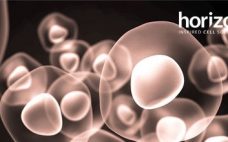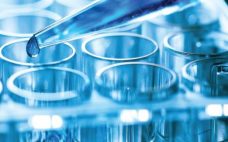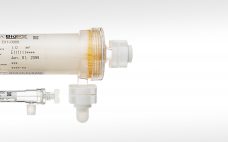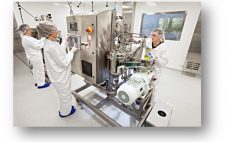This webcast features: Jamie Freeman, PhD, Product Manager, Horizon Discovery While Horizon’s GS knockout CHO K1 cell line is rapidly becoming established as one of the best performing cell lines available for the manufacture of biotherapeutics, there is untapped potential within the CHO system. Horizon is focused on using its expertise in genome engineering techniques to modify CHO cell lines to improve their expression capacity for biomanufacturing. Historically, efforts to increase yield have primarily focused on improving media and feed,…
Author Archives: BPI Contributor
Use of Systematic Tools to Expedite Process Characterization and Maximize Reliability of Process Validation Campaigns
This webcast features: Abel Hastings, Director of Process Sciences, Fujifilm Diosynth Biotechnologies During this webcast you will learn how using a suite of tools, standard practice, and depth of experience in PPQ readiness are aimed at: Effectively focusing attention on critical process understanding and control Scoping and completing the ideal scope and range of characterization Studies to support reliable operations in manufacturing Maximizing reliability during PPQ and commercial manufacturing Enabling full preparedness for PAI and regulatory review
The Challenge of Building Better, Lower Cost Biologic Drugs Faster
A critical factor for both the lowering in costs of development as well as costs of production for biologic therapies is to develop a cell line that grows faster and produces larger amounts of vaccines and drugs using low cost synthetically defined media. Dyadic’s industrially proven C1 gene expression platform creates a stable cell line in a shortened timeline, reducing the time from gene fragment to stable cell line by 50% when compared to CHO cells. C1 stable cell lines…
Culture of 3D Cell Aggregates in Perfusion in a DASbox® Mini Bioreactor System
Three-dimensional (3D) cell aggregates are of great interest for many applications, including disease modeling, drug toxicity assessment, and manufacturing of stem cell-based products. Stirred-tank bioreactors are promising culture systems for 3D cell aggregates, as they allow efficient establishment and maintenance of cell aggregates, process monitoring and control, and process scale-up to larger volumes. Furthermore, they can be operated in perfusion mode, which allows 3D cell aggregates to be sustained longer than in traditional batch cultures. Researchers at the Instituto de…
Dynamic Dialysis: A Novel Process-Scale Membrane Separation for GMP Manufacturing
This webcast features: Daniel (Danny) Spurgin, Product Manager, and Cassidy Markee, Bioprocess Sales Specialist, Repligen While static dialysis is used routinely in research and sample analysis, dynamic dialysis is increasingly used today for the purification of macromolecules, proteins, nanoparticles, biomolecules, polymers (polypeptides, polysacharide, oligos), virus for vaccine and delicate/shear sensitive species. It is also ideal for the purification of viscous fluids and hydrogels (hyaluronic acid – HA) that cannot be filtered. Where traditional filtration methods may fail, dynamic dialysis uses…
Single-Use Sensors and Control and Data Acquisition Tools to Streamline Bioprocess Development
Process development and biomanufacturing in the biopharmaceutical industry have evolved extensively over the past 10 years. More tools are available to study process variables to enable more efficient and productive processes, speed development, and reduce costs. High powered microcontrollers are embedded in laboratory devices to carry out complex tasks. Recently, users have started working with microcontrollers such as Raspberry Pi for personal projects. As personal computer power has accelerated multiplefold,leading to high processing power and compact, high-capacity memory readily available…
Minimizing Resources in Developing Commercial Virus Filtration Processes with Planova BioEX
This webcast features: Roya Dayani, Senior Product Manager, Asahi Kasei Bioprocess Europe Establishing a virus filtration step in biopharmaceutical development and manufacturing process may require a large amount of resources (i.e., time, manpower and cost). These can be minimized with swift process development, smooth scale-up and worry-free operations. In this webinar Asahi Kasei Bioprocess will answer the question “What are the main requirements for a virus filter at each phase?”. You will learn through different case studies the filtration performances…
New High Performance AEX Resin for Large Biomolecule Purification
This webcast features: Jiali Liao, Principal Scientist, Process Chromatography R&D, Bio-Rad Laboratories Large molecule purification can be difficult due to their size. This leads to slow diffusion and mass transfer kinetics of the molecules into the pores of traditional chromatography resins, which decreases their binding capacity and resolution. In this webinar, Dr. Jiali Liao will introduce the design features of the Nuvia HP-Q bead matrix that help overcome these purification challenges. Case studies on plasma protein and virus purification will…
Key Considerations for Advanced Therapies Manufacturing
This webcast features: Thomas Page, PhD, Vice President, Engineering and Asset Development, Fujifilm Diosynth Biotechnologies This technical webinar covers key considerations to support manufacturing activities from the earliest stages of cell line, viral replication platforms and/or viral vectors identification stage leading into clinical production. Having a line of sight into commercial production and the requirements leading into commercial approval are also essential for success. Key messages: Flexibility in conjunction with high containment are key for success Application of closed systems…
Bioproduction Efficiencies Gained Using the New ExpiCHO Stable Production Medium
This webcast features: Shreya Lowmaster, Msc, Field Applications Scientis, Thermo Fisher Scientific Transition from the transient to stable production workflow exclusively in CHO cells with the new Gibco™ ExpiCHO™ Stable Production Medium and cGMP banked Gibco™ ExpiCHO-S™ cells. Transient titers in shake flasks and stable clone titers in a 50L Thermo Scientific™ HyPerforma™ single-use bioreactor were greater than 3.0 g/L in a fed-batch process with comparable product quality.










